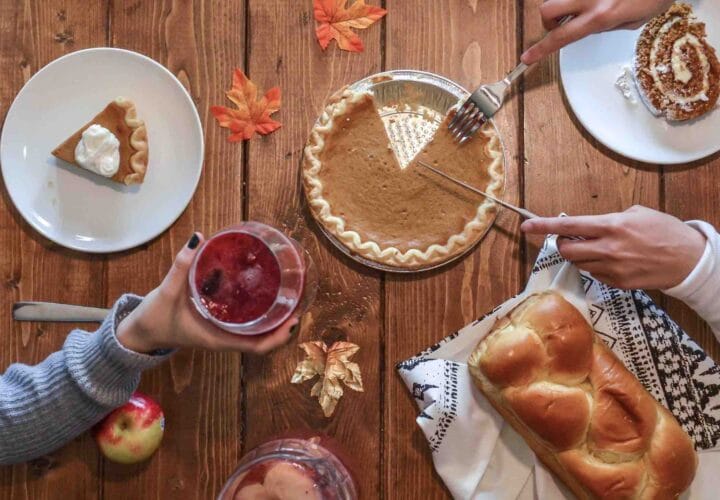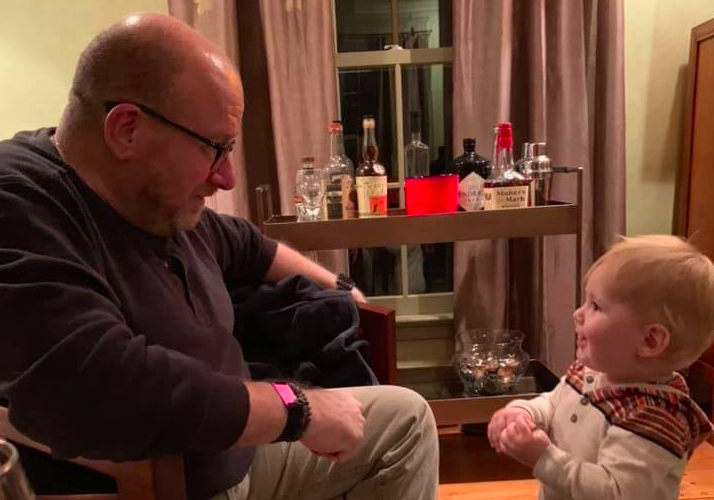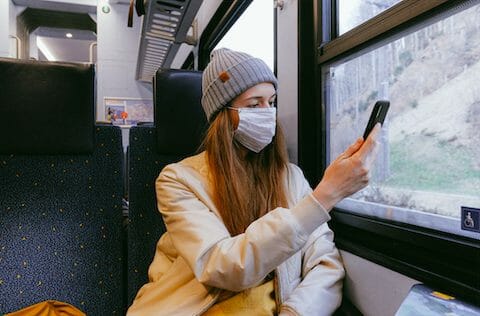This article was written during the first holiday season of the novel coronavirus pandemic, in 2020. Being Patient speaks with experts about safe ways to observe the holiday, taking into account COVID-19 precautions.
Debra Law, a nursing instructor and caregiver to her mother with dementia in San Jose, California, would normally have Thanksgiving dinner at a friend’s, while her 19-year-old daughter would have Thanksgiving dinner with her late father’s family — including her grandmother. This year, instead of enjoying a sit-down meal together, Law’s friend will drop a Thanksgiving meal at Law’s house, and as for her daughter’s dinner plans, Law is urging against it.
“I have to keep letting her know that our job is to protect her grandmother here, and that if she goes outside of the household, we’re not keeping her safe,” Law told Being Patient. “I already take a calculated risk every time I go to work as a nurse. But that’s something I have to do to be able to pay the bill. I’m really trying to impress on her the fact that ‘Yes, it sucks that we’re not able to do what we normally do this year. But we cannot afford to put my mom’s health at risk.’” Law said that goes for other family members too.
As the holiday season approaches and cases of COVID-19 continue to crop up across the nation, millions of families are still navigating how to celebrate safely amid the pandemic — especially those with older relatives, and family members who live with Alzheimer’s or related dementias.
Elizabeth Edgerly, executive director of the Alzheimer’s Association, Northern California and Northern Nevada, told Being Patient that this year’s Thanksgiving and Christmas gatherings will require a great deal of caution.
“The real danger here is that we’re tired of being careful, and we really miss our loved ones,” Edgerly said. “Yearning to be able to connect could potentially lead us to do things that could be dangerous and lead to really serious consequences.”
COVID-19 and Dementia
Dementia itself does not appear to increase risk for COVID-19. However, Director of the Cleveland Clinic Lou Ruvo Center for Brain Health Dr. Marwan Sabbagh said people with dementia are more likely to be older, physically frail, and to live in memory care facilities, many of which have been ravaged by outbreaks of COVID-19. They often have underlying health conditions, and issues with cognitive skills introduce difficulty when it comes to following COVID-19 safety protocols like wearing a mask. All these factors put them at high risk for infection and for severe complications of the disease.
Dr. Helen Fernandez, professor of geriatrics and palliative medicine at Icahn School of Medicine at Mount Sinai added that it can be harder to spot symptoms of COVID-19 in a loved one with dementia, as they can have difficulty communicating that they’re feeling sick. The COVID-19 symptoms that may present in people with dementia — like fatigue, poor sleep and poor appetite as well as slight increase in confusion due to the disease — are subtle and easy to miss, potentially leading to delayed medical attention.
Ways to Celebrate the Holidays Safely in the Pandemic
Accordingly, Fernandez has advised her patients and their caregivers to limit holiday gathering guest lists to people who live in the household. Celebrating the holidays with an in-person meal indoors with others beyond the immediate household, she told Being Patient, is too risky.
“We just don’t know what other family members or friends’ exposure has been,” she said. “Have they been taking the same precautions as your household has?”
Sabbagh urged people who feel compelled to visit a loved one outside their immediate household to undergo two COVID-19 tests that are three to five days apart, while isolating themselves between and after the tests, prior to seeing their family members.
“The real danger here is that we’re tired of being
careful, and we really miss our loved ones.
Yearning to be able to connect could potentially
lead us to do things that could be dangerous
and lead to really serious consequences.”
While many people have been overwhelmed by the fatigue of following COVID-19 protocols, especially for caregivers who have been home with their loved one with dementia and juggling a job, “people just have to keep on remembering that we can do a lot in terms of infection prevention, and we can bring down infectivity,” Fernandez said. Following these protocols, there are various ways families can observe the holiday safely.
Firstly, she said, adjust expectations and celebrate in smaller ways. Friends and families may visit during the day outdoors if possible — perhaps on the porch or the yard — maintaining a physical distance of six feet, wearing masks and limiting time spent together.
Consider celebrating earlier in the day, Edgerly said — which could involve a holiday brunch, since early evenings can be a disorientating time for people with dementia as their sundowning may emerge.
Experts also recommended seeing loved ones over short, structured video calls, sending pre-recorded messages, mailing letters or photo albums, or dropping off food.
Edgerly suggested friends and families could enjoy desserts together over Zoom, and loop in a caregiver to help set up and facilitate the video call. However, she noted, people with dementia may have difficulty comprehending a video call — families and friends should manage their expectations.
Sarah Dulaney, a nurse coordinator at University of California San Francisco’s Care Ecosystem study, a remote dementia care coordination program, agreed, but she said that structured video calls can help so as not to overwhelm a loved one.
“In general, it can be hard for people with dementia to follow group conversations,” Dulaney said. “They can sit back and be more observant. Even for in-person celebrations, they may not be participating in conversations as much as others.”
“It’s important to try to help people with dementia participate as much as they can and also recognize when they need rest or when things are too challenging for them,” she continued. “Long Zoom visits or Zoom visits where everybody’s trying to talk at the same time might be overstimulating for them.”
She suggested that participants could take turns talking, sing a song together or set up a taste test for different pies and talk about which pie is the best. She also recommended holding shorter Zoom calls with fewer people.
Meanwhile, it’s important to keep in mind that some people with dementia may have difficulty communicating over the phone. Alternatively, Dulaney suggested friends and family could send letters about past memories, or something they’re grateful for, or brief pre-recorded video clips edited together, helping the recipient feel connected and loved.
“Thanksgiving has a theme around gratitude, and the holidays are always a time for reminiscing,” she added. “It’s important to take opportunities to boost people’s self esteem.”
“When families do share a time together, try to recognize the impact that the person with dementia has had on their life in the past: ‘You’ve been such a hard working provider. You’ve given me opportunities that I wouldn’t have had,’ or, ‘You’ve been such a strong person who helped me get through hard times. Whatever that person has been to you, try to think about ways to acknowledge that.”
Contact Nicholas Chan at nicholas@beingpatient.com





